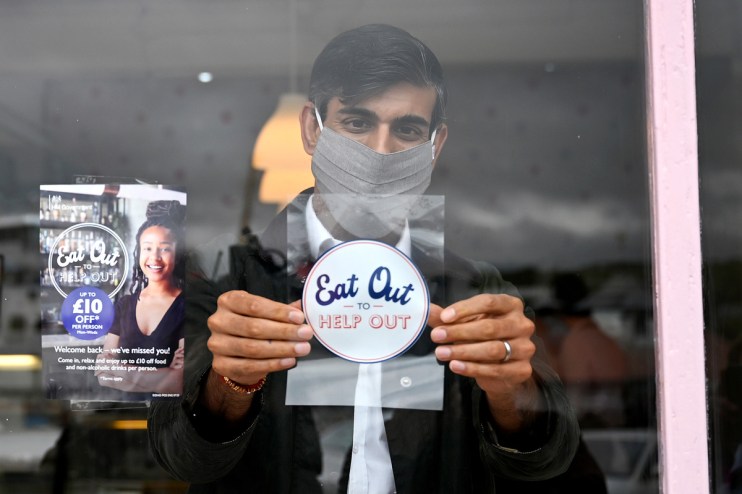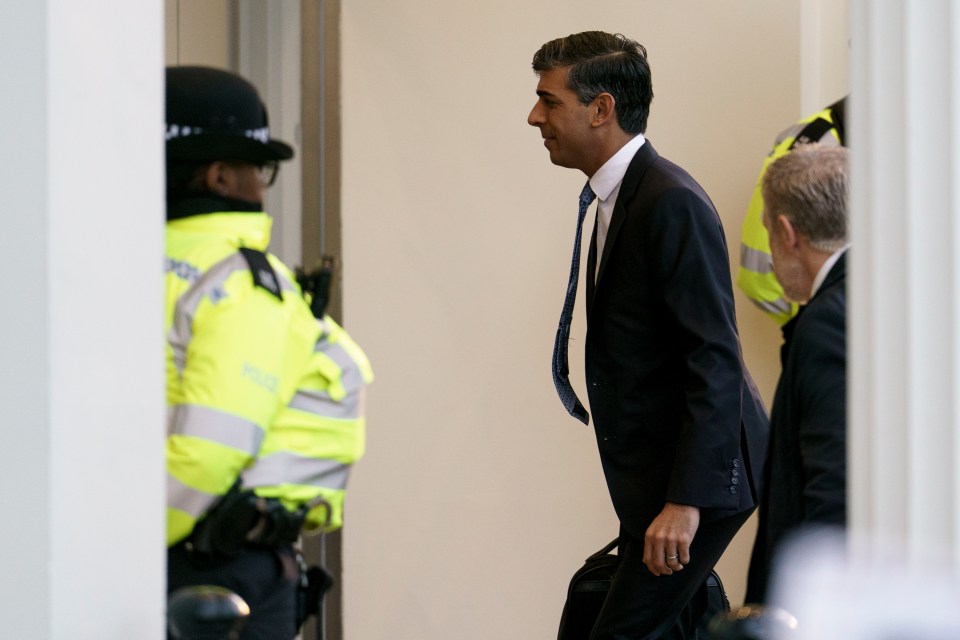Covid inquiry: Sunak denies describing ‘clash’ between economy and public health

Rishi Sunak has denied describing a “clash” between the economy and public health during the Covid-19 pandemic, the official UK inquiry has heard.
The Prime Minister, giving evidence to the inquiry this morning, was asked about how he approached the balance of priorities in his previous role as Chancellor, in Boris Johnson’s government.
And Sunak, who led the Eat Out to Help Out scheme which has been criticised for spreading the virus, and was reportedly described as ‘Dr Death’ by a government scientist, denied ever “referring to it as a clash”.
He also stressed that it was “hard to be precise” when it came to economic advice in the early days of the pandemic, given the circumstances were “so unpredictable and uncertain”.
Inquiry counsel Hugo Keith KC asked the Prime Minister to reflect on the “clash between public health, epidemiological considerations and economic and fiscal issues”.
But hitting back, Sunak insisted: “I don’t think I ever referred to it as a clash.
“I think I saw my role as Chancellor of the Exchequer as making sure that the prime minister had the best possible advice, information, analysis relating to the economic impact or consequences of some of the decisions that he was having to make.”
He added that as a “senior cabinet minister, one of the consistent arguments or points that I made from the beginning and throughout was just making sure that we collectively and the Prime Minister considered the totality of the impacts of the decisions that we were making.
“It wasn’t – I didn’t ever describe it as – a clash just between public health and economics. I think that’s to think about it in far too narrow a way.
“There were a range of impacts, many of them socio-economic, on children’s education, on mental health… the criminal justice system, as well as the pure economic impact.
“It was important that policymakers considered the totality of those.”

Asked whether there was a “narrower debate about the economic and fiscal consequences” before the first lockdown compared to the second and third lockdowns, Sunak agreed.
“I think that is fair, not least because this was so unpredictable and uncertain, once we had entered into the first lockdown, then you actually had data as to the impact of these measures,” he told the inquiry.
“You could use those to forecast what would happen in the future when you were going to repeat them…. [but] it is very hard to be precise about the impacts.”
Sunak also told the inquiry that he did not have access to WhatsApp messages from the time of the pandemic as he had changed his phone.
Asked by Keith, the Prime Minister said: “No, I don’t, I’ve changed my phone multiple times over the past few years and, as that has happened, the messages have not come across.”
He added that he was “not a prolific user of WhatsApp” and insisted “obviously anything of significance through those conversations or exchanges would have been recorded officially”.
Sunak is expected to give evidence throughout the day, before a crunch vote in the House of Commons tomorrow on emergency legislation to enable the Rwanda deportation scheme.
The vote is widely being seen as a matter of confidence in his government, as Tory MPs consider whether to back him on the issue – a key plank of his ‘five pledges’ to the public.
